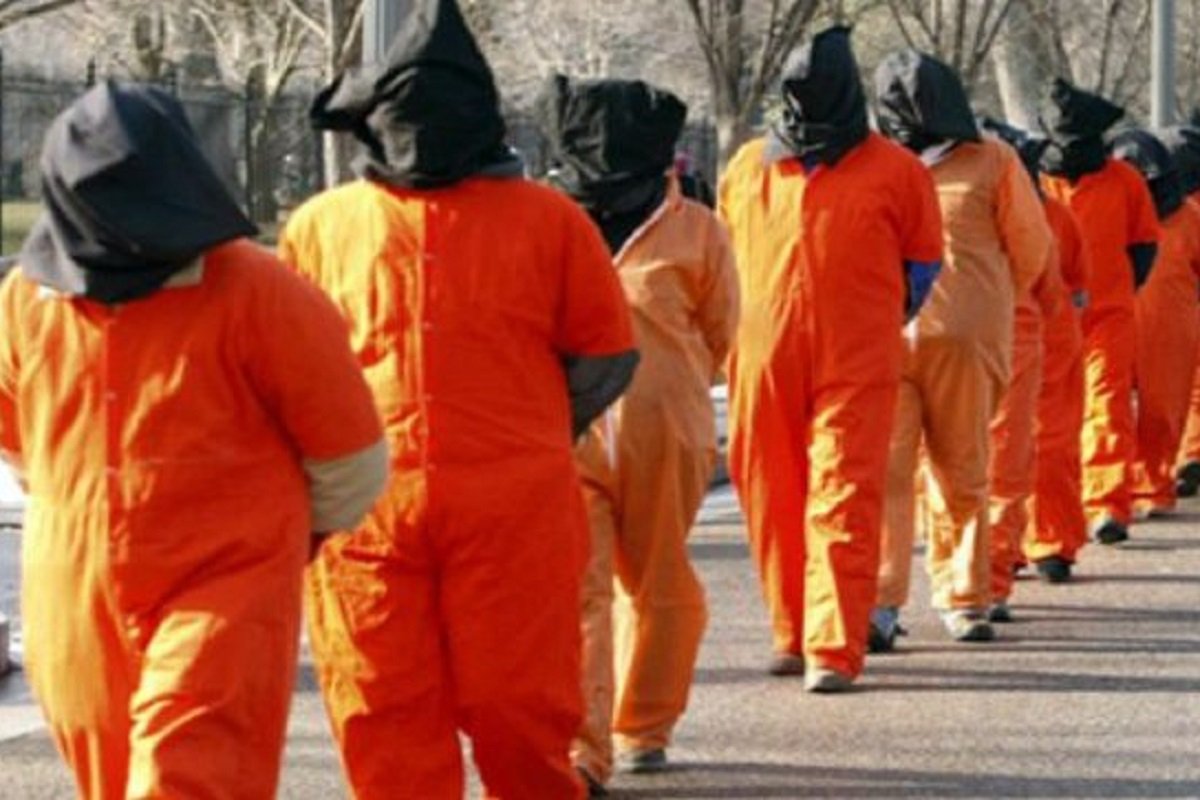Reporters Without Borders (RSF) has made a statement on Thursday and stated that is has appalled by a new Turkish decree under which detainees accused of links to terrorism or to the July 2016 coup attempt will have to wear a uniform of a specific colour for court appearances. “This arbitrary measure will violate the right of dozens of detained Turkish journalists to be presumed innocent,” said the RSF.
As the statement has said that in addition to being jailed on extremely grave charges, these journalists will now be stigmatized by the colour-coded attire they must wear when being tried, RSF secretary-general Christophe Deloire stated that “The sole aim of this measure is to humiliate, intimidate and stigmatize the detainees concerned,” and added “In violation of the right to be presumed innocent, imprisoned journalists will be identified with the perpetrators of the bloody coup attempt of July 15, 2016. We call for the immediate repeal of this decree, which constitutes yet another step in the Turkish judicial system’s transformation into an instrument of political revenge.”
Under Decree No. 696, published in the Official Gazette on December 24, 2017, detained defendants charged with involvement in the 2016 coup attempt will have to wear a brown uniform in court, while those charged under the terrorism law will have to wear a grey one.
The RSF has stated that these two categories of charges, which are defined in an extremely vague and broad manner, have been systematically brought against the victims of the 18-month-old purge in Turkey, who have included many journalists. According to initial estimates, this decree could affect more than 58,000 detainees.
“More than 100 journalists are currently detained in Turkey, of whom at least 40 were arrested in connection with their journalistic activities, according to RSF’s provisional tally. Despite the lack of hard evidence, almost all are alleged to have been members of a terrorist group or involved in the coup attempt. Most are still detained provisionally pending the outcome of their trials,” reminded RSF.
The new measures are expected to take force in a month’s time, as soon as the justice ministry has drafted the implementation regulations. All detainees except pregnant women and minors will have to wear a uniform for their court appearances.
Many prisoners may refuse to wear the uniform with as yet unknown consequences that could include being barred from appearing in court. The obligation to wear a uniform led to waves of hunger strikes in the 1980s in which several political prisoners died.
The reintroduction of uniforms had been mooted for several months. After a much-reported court appearance by a former soldier in a T-shirt bearing the word “Hero” in July, President Erdoğan promised that those charged with “crimes against the state” would soon be made to appear in court in uniforms like those worn by Guantánamo detainees.
Turkey is ranked 155th out of 180 countries in RSF’s 2017 World Press Freedom Index. The already worrying media situation in Turkey has become critical under the state of emergency proclaimed after the July 2016 coup attempt.
Turkey is the biggest jailer of journalists in the world. The most recent figures documented by the SCF has showed that 244 journalists and media workers are in jails as of December 26, 2017, most in pre-trial detention languishing in notorious Turkish prisons without even a conviction. Of those in Turkish prisons, 217 are arrested pending trial, only 27 journalists remain convicted and serving time in Turkish prisons. An outstanding detention warrants remain for 139 journalists who live in exile or remain at large in Turkey.
Detaining tens of thousands of people over alleged links to the Gülen movement, the government also closed down more than 180 media outlets after the controversial coup attempt.
Turkey survived a controversial military coup attempt on July 15, 2016 that killed 249 people. Immediately after the putsch, the Justice and Development Party (AKP) government along with President Erdoğan pinned the blame on the Gülen movement.
Gülen, who inspired the movement, strongly denied having any role in the failed coup and called for an international investigation into it, but President Erdoğan — calling the coup attempt “a gift from God” — and the government initiated a widespread purge aimed at cleansing sympathizers of the movement from within state institutions, dehumanizing its popular figures and putting them in custody.
Turkey has suspended or dismissed more than 150,000 judges, teachers, police and civil servants since July 15. Turkey’s Interior Minister announced on December 12, 2017 that 55,665 people have been arrested. Previously, on December 13, 2017, The Justice Ministry announced that 169,013 people have been the subject of legal proceedings on coup charges since the failed coup.















